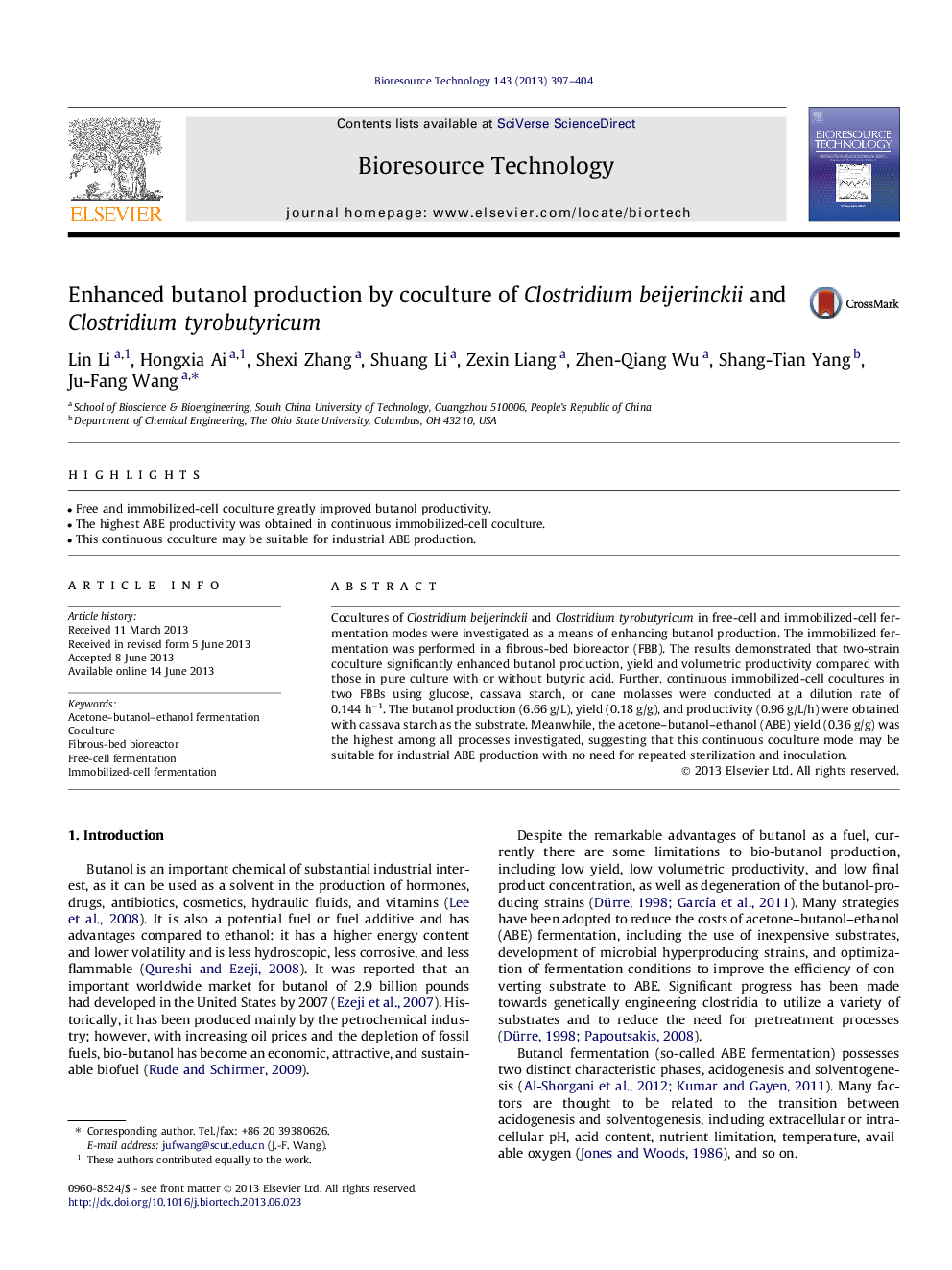| Article ID | Journal | Published Year | Pages | File Type |
|---|---|---|---|---|
| 7081434 | Bioresource Technology | 2013 | 8 Pages |
Abstract
Cocultures of Clostridium beijerinckii and Clostridium tyrobutyricum in free-cell and immobilized-cell fermentation modes were investigated as a means of enhancing butanol production. The immobilized fermentation was performed in a fibrous-bed bioreactor (FBB). The results demonstrated that two-strain coculture significantly enhanced butanol production, yield and volumetric productivity compared with those in pure culture with or without butyric acid. Further, continuous immobilized-cell cocultures in two FBBs using glucose, cassava starch, or cane molasses were conducted at a dilution rate of 0.144Â hâ1. The butanol production (6.66Â g/L), yield (0.18Â g/g), and productivity (0.96Â g/L/h) were obtained with cassava starch as the substrate. Meanwhile, the acetone-butanol-ethanol (ABE) yield (0.36Â g/g) was the highest among all processes investigated, suggesting that this continuous coculture mode may be suitable for industrial ABE production with no need for repeated sterilization and inoculation.
Related Topics
Physical Sciences and Engineering
Chemical Engineering
Process Chemistry and Technology
Authors
Lin Li, Hongxia Ai, Shexi Zhang, Shuang Li, Zexin Liang, Zhen-Qiang Wu, Shang-Tian Yang, Ju-Fang Wang,
